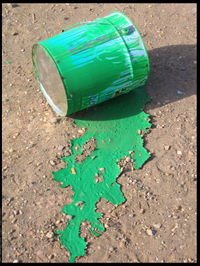http://dailstrug.blogspot.com/2010/03/social-security-document-submission_26.html
 I was an unctuous, repulsively good little boy. My life as a child did not prepare me for the fact that the world is full of cruel and bitter things. My sheltered home life had offered me no normal, healthy way to be a bastard. But it had created an inner toughness, even a physical stoicism, that I myself may not have recognized.
I was an unctuous, repulsively good little boy. My life as a child did not prepare me for the fact that the world is full of cruel and bitter things. My sheltered home life had offered me no normal, healthy way to be a bastard. But it had created an inner toughness, even a physical stoicism, that I myself may not have recognized.Anxious to get me out of doors and among boys my own age, my father decided to send me, at the age of fourteen, to summer camp. For most of the other boys there, Camp Koenig was a mountain paradise of fun and camaraderie. For me, it was an ordeal. Everything about me made me a target for the cruelties young adolescents delight in inflicting on those who are shy, sensitive or different. The other boys soon began calling me "Cutie" and teased me mercilessly. But I refused to fight back. Shunning athletics, I walked the trails, collecting rocks. I made one friend, who still recalls that I was obsessed that summer with the writings of George Eliot. The novelist's major work, Middlemarch, appealed to me greatly, perhaps because it explored so thoroughly a topic I found so mysterious: the life of the inner mind in relation to the making and breaking of human relationships.
Then, however, I made the mistake of writing my parents that I was glad I had come to camp because the other boys were teaching me the facts of life. This prompted a quick visit by my parents, and subsequently the camp director announced a crackdown on the telling of salacious stories. Inevitably, I was fingered for tattling, and so one night I was carried off to the camp icehouse, stripped and knocked about. As a final humiliation, the boys doused my buttocks and genitals with green paint. I was then left naked and locked inside the icehouse for the night. My one friend later said of this incident that I had been "tortured." I suffered this gross degradation in stoic silence; I neither left the camp nor complained. "I don't know how Gary stuck out those remaining weeks," said my friend. "Not many boys would have--or could have--but Gary did. It must have been hell for him." As my friends in later years often discovered, my seemingly brittle and delicate shell actually disguised a stoic personality built of stubborn pride and determination, characteristics that would reappear throughout my life.

3 comments:
"I made one friend, who still recalls that I was obsessed that summer with the writings of George Eliot."
you still in touch?
doused with green paint! in retrospect, you got to be thinking it was a funny thing to do. mean yes, but funny all the more. glad the experience revealed to you an inner resilience.
I've always been amazed by what happened at Columbine; students shunned by the student body who become violent and homicidal. I always had struggles with my peers, but from an early age, I knew that many people have struggled with difficult social relations. I was always aware of history and the great difficulties that historical figures have faced.
I suppose narcissism can be an adaptive thing. Since childhood I had the feeling that my problems with other people were a confirmation of my greatness not something to grieve over. I would be suspicious of any person who said he had a happy childhood. I would think of that person: Certainly, he's not destined for greatness.
Call me an egotist, but that's how I get through my days.
J. Robert Oppenheimer: Violence is for goyim.
Post a Comment